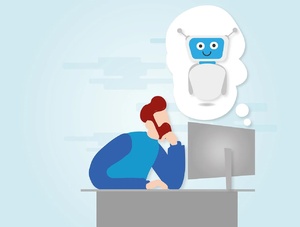What’s the first interaction a candidate has with your business? It’s not onboarding or the first day on the job. It’s not even the interview process. It’s being a candidate – applying to a job and then moving through the screening and hiring process. The “candidate experience,” as it’s commonly called, is an absolutely critical part of your firm’s interactions with the job seekers you serve. In fact, according to talentadore.com, between 80 and 90 percent of talent say a positive or negative candidate experience will change their minds about a role, or a company.
While creating a great candidate experience has a lot to do with the person-to-person connections between candidate and recruiter, technology also plays a big role. And the reality is that in today’s job market and hiring landscape, recruiters can’t talk personally with every single person that applies to their open jobs. That’s where recruiting agency software comes into play.
Let’s take some time to think about why the candidate experience is so important and what makes it great. Then, we’ll discuss how staffing agency software works and how it helps to improve the candidate experience. That will help your firm make the important decisions on which software for staffing agencies is right for you.
Why is the Candidate Experience Important?
The candidate experience essentially boils down to how your candidates feel about your company once they’ve experienced your hiring process. And those feelings influence candidates as to whether they will continue working with your firm and accept a job offer. Of course, only one candidate out of the pool – most of the time – will make it to the job offer stage. So, part of a good candidate experience involves making all candidates, even those who aren’t accepted for a job, feel good about your process.
To put it simply, the candidate experience is important because you want your reputation as an employer to speak for itself, even for those candidates who didn’t make it to the job offer stage. If they feel good about the process, it’s much more likely they’ll apply for another job with you or continue working with a particular recruiter.
Consider the flip side, too: If a candidate has a poor experience with you, they’re likely to talk about it with colleagues, friends, and peers in their network. Your business could start to gain a reputation as one that’s hard to work with.
What Makes for a Great Candidate Experience?
It’s clear why fostering a great candidate experience is so important. It’s about your business’s reputation and your success in the future. So how do you make sure you’re providing a great candidate experience every time?
Application Process
Remember: the application process is really the first impression the candidate will get of you. First of all, make your job listings easy to find — don’t bury them in an obscure spot on your website or make candidates hunt through multiple links to get to the right place. From there, be sure to give clear instructions on how to apply for jobs, and if possible, don’t make candidates log into a system or create a new account in order to apply. This turns off many candidates right away. Last but not least, make sure your application process is mobile-friendly since many candidates are applying from their phones while on-the-go rather than sitting down at a computer or laptop.
Communication
What does your communication look like in regard to your candidate experience? One of the biggest complaints candidates have across the board is not receiving enough communication from recruiters about their status. You never want candidates to feel as though they’re applying into a black hole – make sure that your system is set up to send a confirmation email when candidates submit an application, and follow up regularly with the candidate as they move through the hiring funnel. Always use the candidate’s name in your correspondence to give it that personal touch. And when you have to reject candidates, do it politely and from a real email address; nothing is more hurtful than a rejection from a generic “careers@companyX.com” email address.
Interview Process
Once candidates get past the application stage, they’ll enter the interview stage if you decide to move forward with them. This is your first face-to-face interaction, whether it’s in person or over video chat. Make it count. Start on time, explain the interview process and what the candidate can expect, and take thorough notes during the interview. Always thank the candidate for their time as the interview wraps up, and follow up with an email letting them know you’re proceeding or rejecting them as soon as you can. Giving candidates the silent treatment is a quick way to turn them off of your firm.
As mentioned above, there’s another way that you can improve the candidate experience: through the power of software for staffing agencies. Let’s dive in.
What is Staffing Agency Software?
Staffing agency software is just what it sounds like: software for staffing agencies designed to make a variety of recruitment processes easier, more efficient, and better for both the recruiter and the candidate. And yes, staffing agency software is designed to improve the candidate experience as well.
Staffing agency software tools like Applicant Tracking Systems (ATS) and Vendor Management Systems (VMS) are designed to make every part of the recruitment process more streamlined and effective. They help recruiters craft and post job descriptions; automate various parts of the process, including communication and candidate follow-up; analyze data to gain insights into candidate behavior; and much, much more.
How Does Applicant Tracking Software Work?
In today’s recruitment landscape, an indispensable piece of technology that makes up the core of your company’s operations is an ATS for staffing companies. These systems collect and store resumes in a database, allowing recruiters to access the data immediately or long after the candidate applies for a job. The system allows the recruiter to search and sort through the applications in a number of ways, including based on keywords that match the job they’re hiring for
In addition to collecting and storing resumes, an ATS system can provide recruiters with data-driven insights into their candidate experience, such as where the candidate found the job posting and how often they checked on the status of their application.
How Staffing Software Can Improve Candidate Experience
Staffing agency software helps your company improve the experience you’re offering to candidates in a variety of ways, including:
More Accurate Job Descriptions






